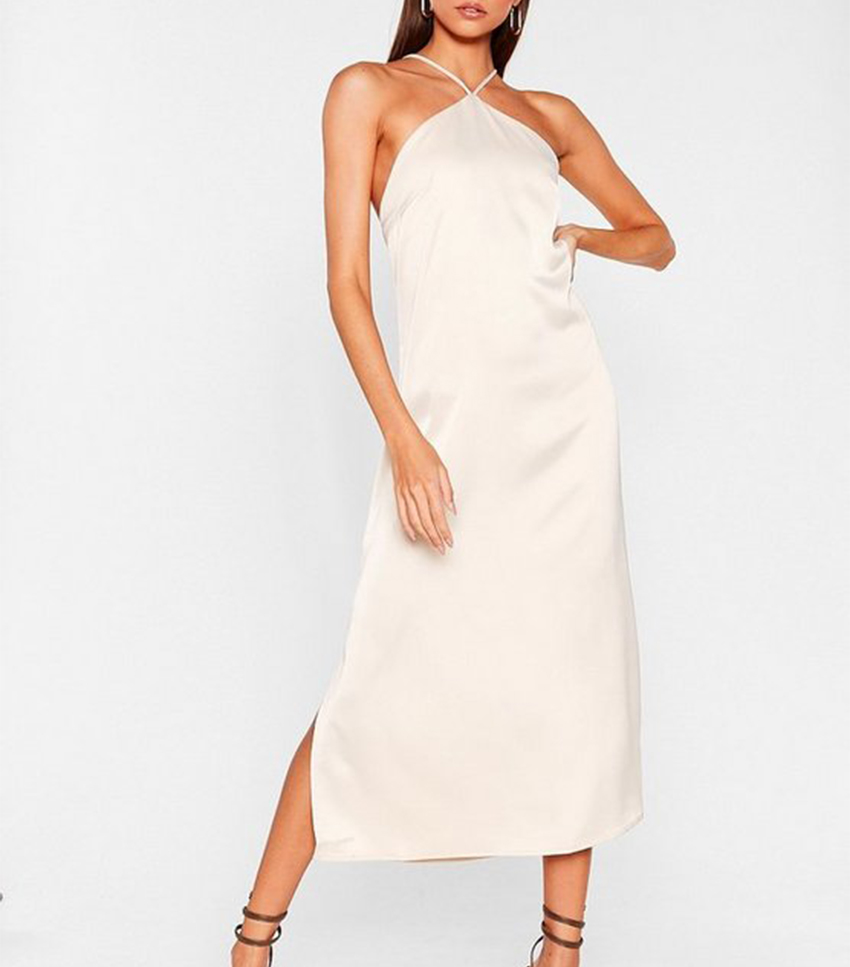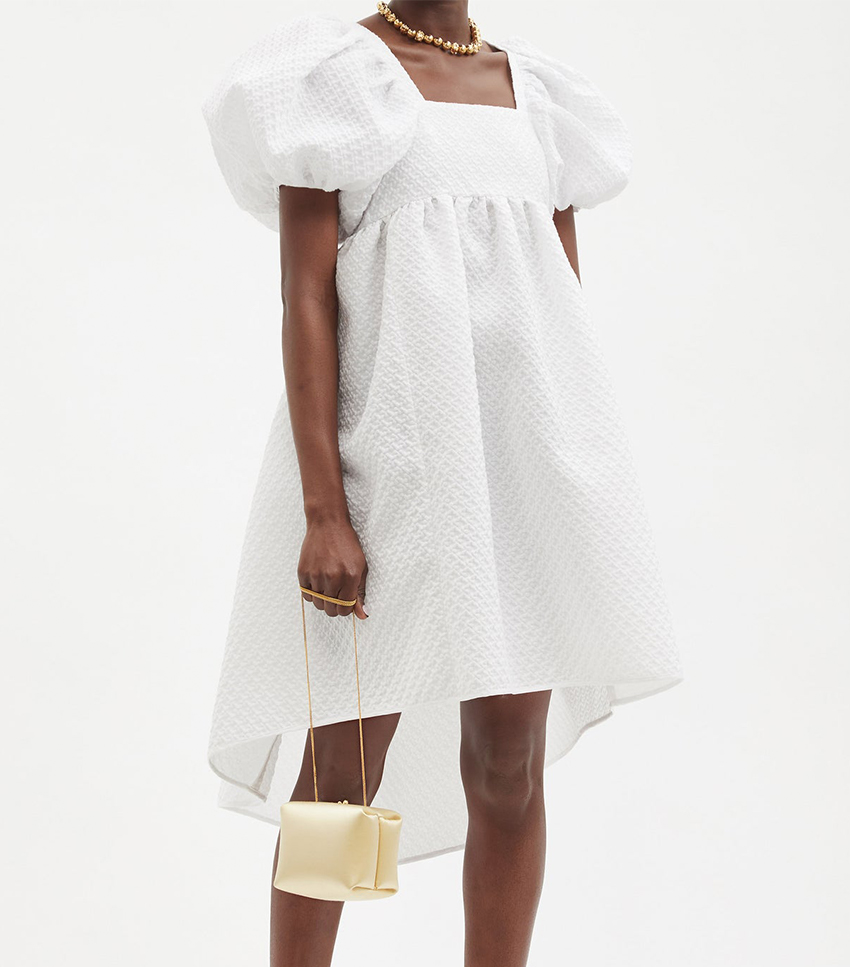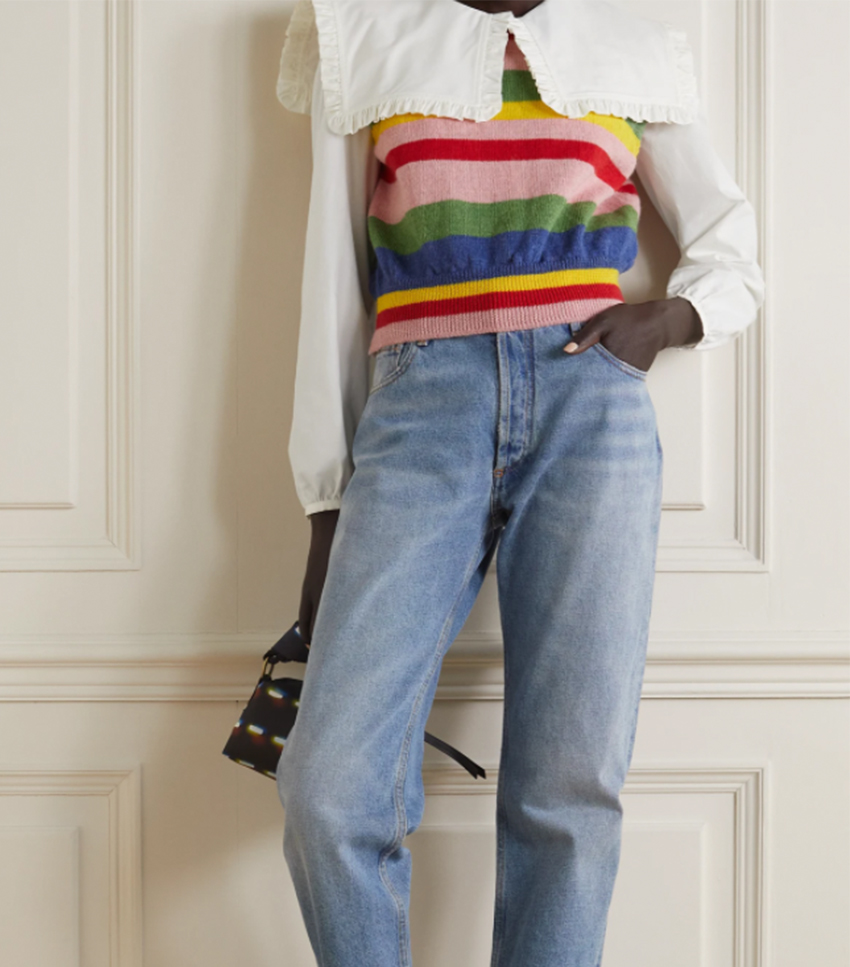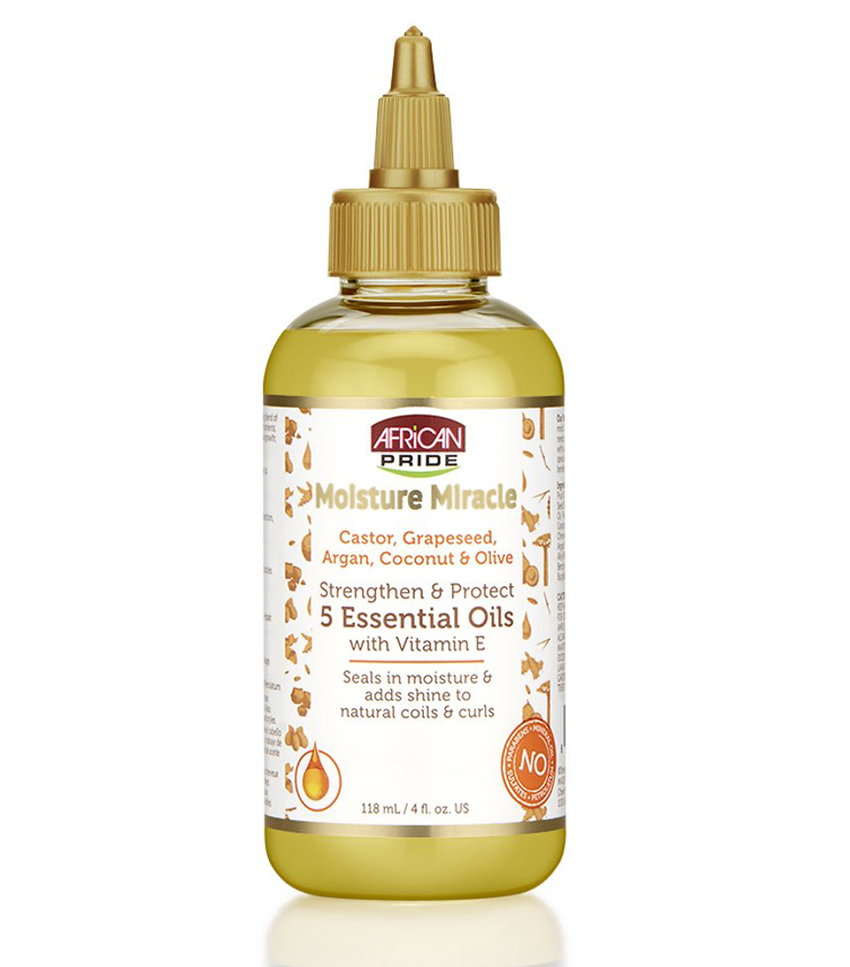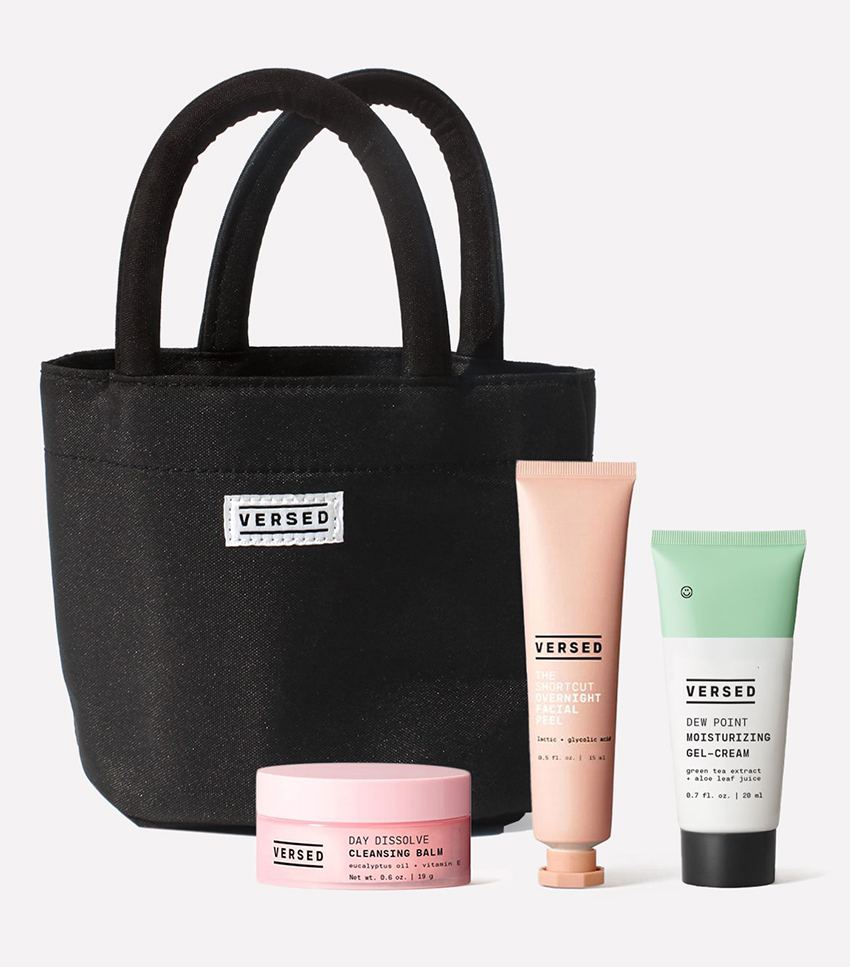British Musician Griff Is Giving Us the Good Stuff
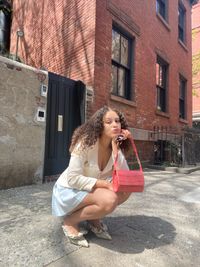
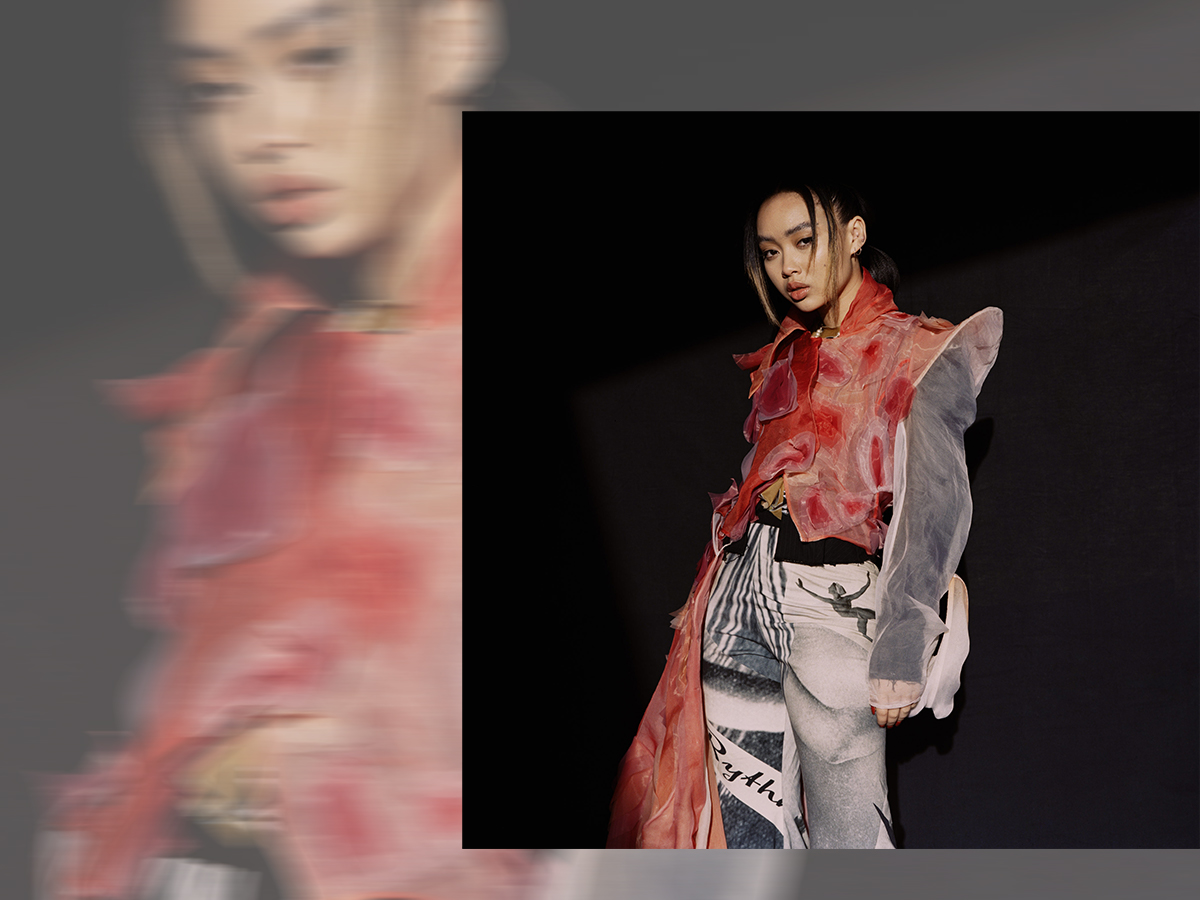
Undoubtedly, some of the best musicians have come out of Britain—what would we do without Adele, The Beatles, or our beloved Harry Styles? It could be something in the water, but year after year, the U.K. music scene, and by extension, the annual BRIT Awards, has introduced us to some of our favorite artists of the moment, including Dua Lipa and Jorja Smith, the Rising Star Award recipients from 2017 and 2018 respectively. It’s no wonder, then, that our latest It-Brit obsession is this year’s Rising Star winner, Sarah Faith Griffiths, known by her stage name, Griff. Unlike many pop icons of the past, Griff is not your typical star—that’s what makes her, her. She first appeared on our radar due to her beauty and style chops. Griff’s signature look (think: Cecilie Bahnsen-like puff-sleeve dresses paired with a protective bubble ponytail with extensions) is far more unique than the prototypical British exports of the past.
Looks aside, her sound is equally as differentiating from her predecessors. Griff’s sonic cannon ranges from euphoric electronic beats to stripped-back melodies played on a piano in her home. Griff’s focus breaks the mold by writing about every facet of being a young woman trying to find her footing in the world (that’s not to say she doesn’t have a crowd-favorite breakup hit, i.e. the song "Black Hole”). It’s this one-of-a-kind approach that makes her one not to skip over.
That fact is crystallized when Griff joined us for an interview over Zoom from her backyard in Kingsley, London. The sound of birds chirping in the background fused perfectly with her calming voice. And as the sun shined brightly on her as we spoke about everything from the inspiration behind her most recent mixtape (One Foot in Front Of The Other), the role fashion plays in her life, and how growing up bi-racial in a small, predominantly white British town propelled her to channel her creativity into music. Through her self-penned lyrics, self-designed style, and even this interview, it’s abundantly clear that while it’s easy for many rising stars to lose touch, her feet stand firmly planted on the ground in who she is and what it’s all about: the artistry.
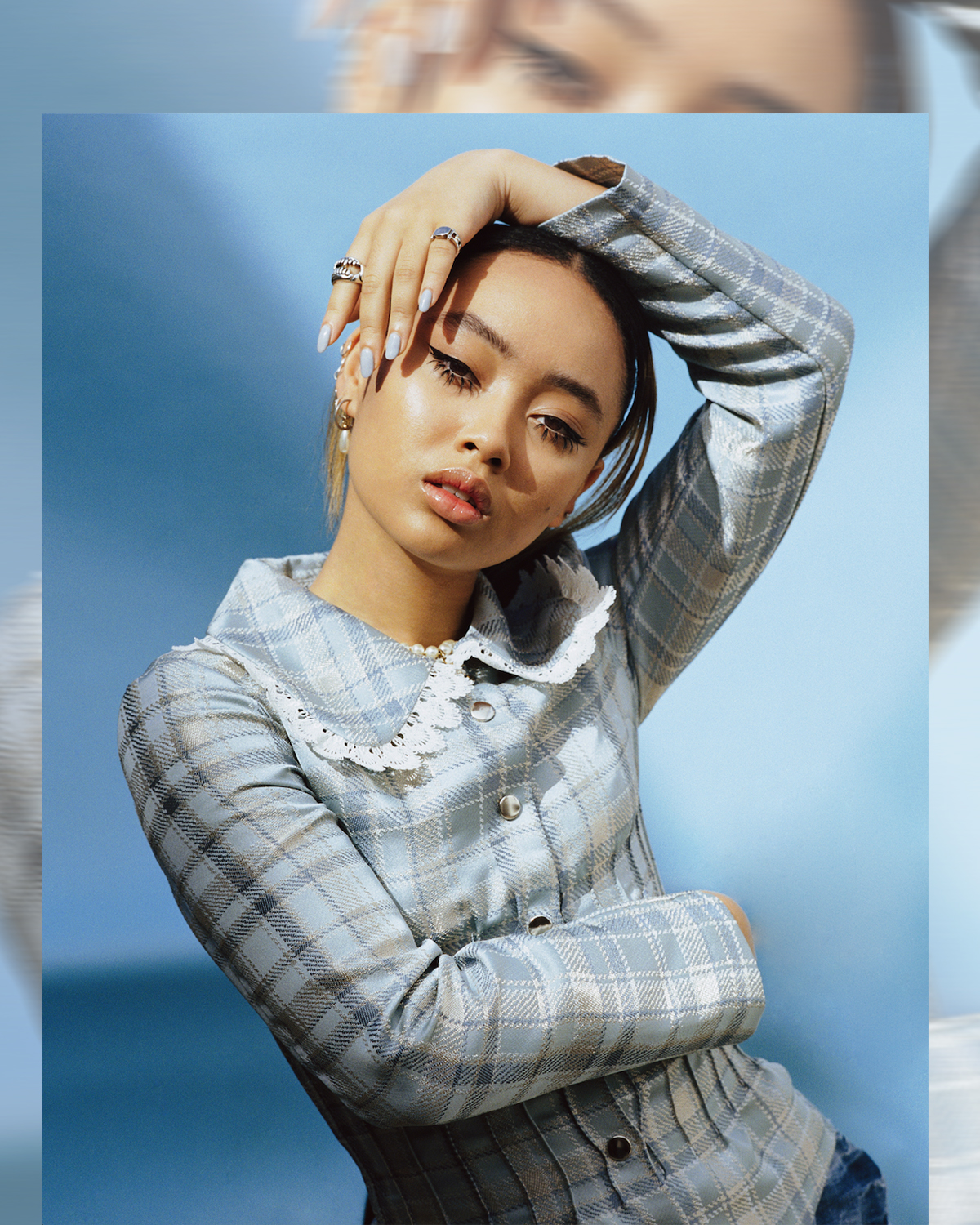
Can you recall the moment you knew you wanted to pursue a career in music?
I don’t know if there was a moment as much as there was a few moments. When I was 10, I decided to always sing in the house, and I don’t know why. But I didn’t think it was possible to pursue a music career until I signed my deal when I was 18. That was when I was like, "I can do this full-time, and it’s happening because I’ve signed on the dotted line now.”
How did you end up signing with Warner Records?
It started when I traveled to London a lot to work with managers and producers. One day, my manager at the time got off a plane, and his phone exploded with all these publishers and labels calling him up, and he was like, "What’s happened?” There was a SoundCloud link that had been passed around to various labels, and from there, we started taking meetings. I didn’t know what a record label was or what a publishing deal was. I was just like, "Okay, it’s cool that these business people want to do business.”
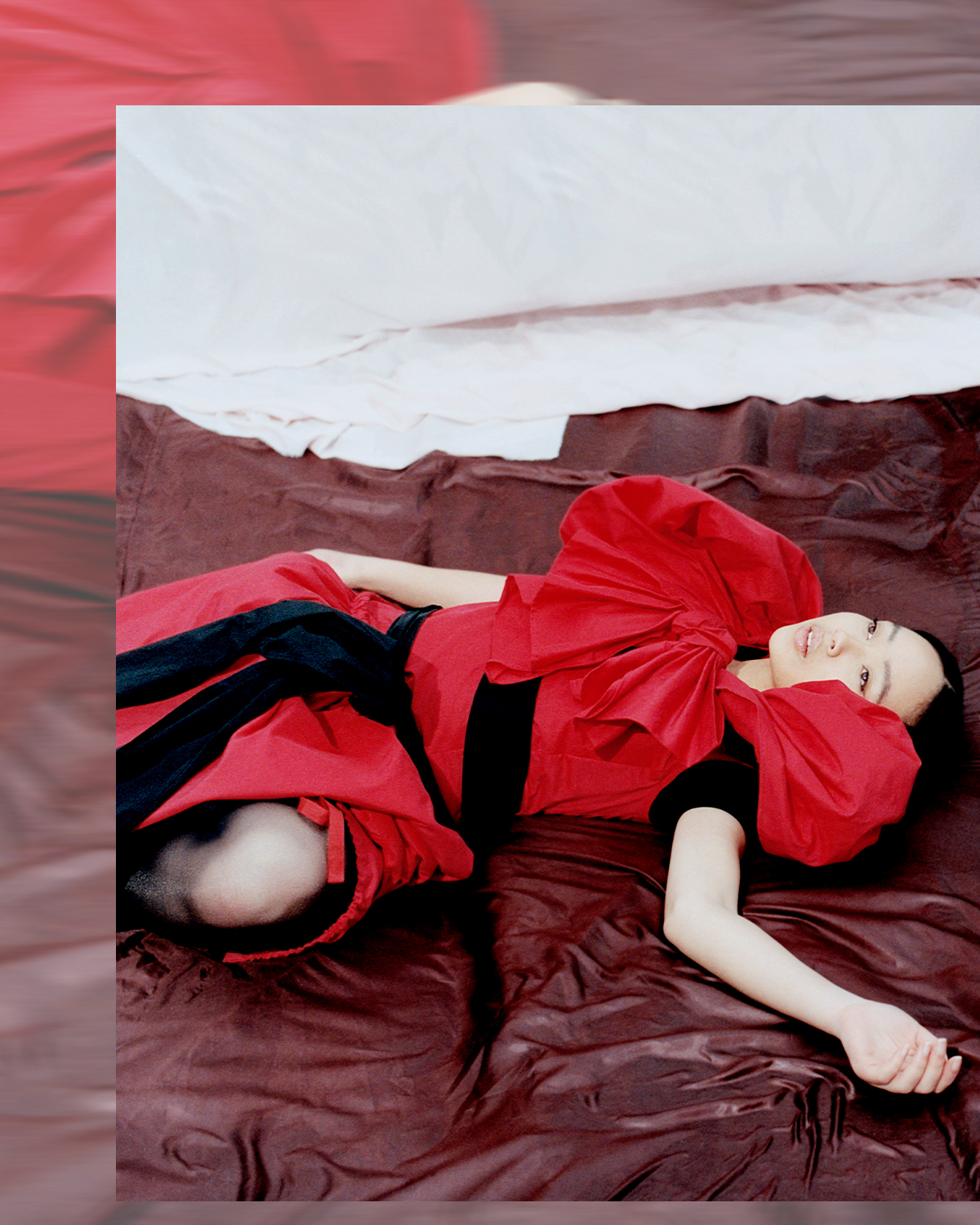
What inspires you to create music?
I mainly just write down random little thoughts I have and see if that feels cohesive enough to go into a song. But it will always be based on some real feelings I have and internal thought processes. I also write about my relationships with friends, family, lovers, or whatever. So lyrically, that’s where I draw inspiration from, and sonically, I don’t know. I just try to write lovely, euphoric pop songs.
Is there a particular song you’ve written that encapsulates your sound and who you are as an artist?
There’s a song not on this mixtape that I loved called "Sound of Your Voice.” There’s a song on this mixtape called "Shade of Yellow” that I also really love. Sonically, they’re quite different, but it’s that idea of having a simple production and having the melodies carry it and telling some sort of beautiful story that feels like me.
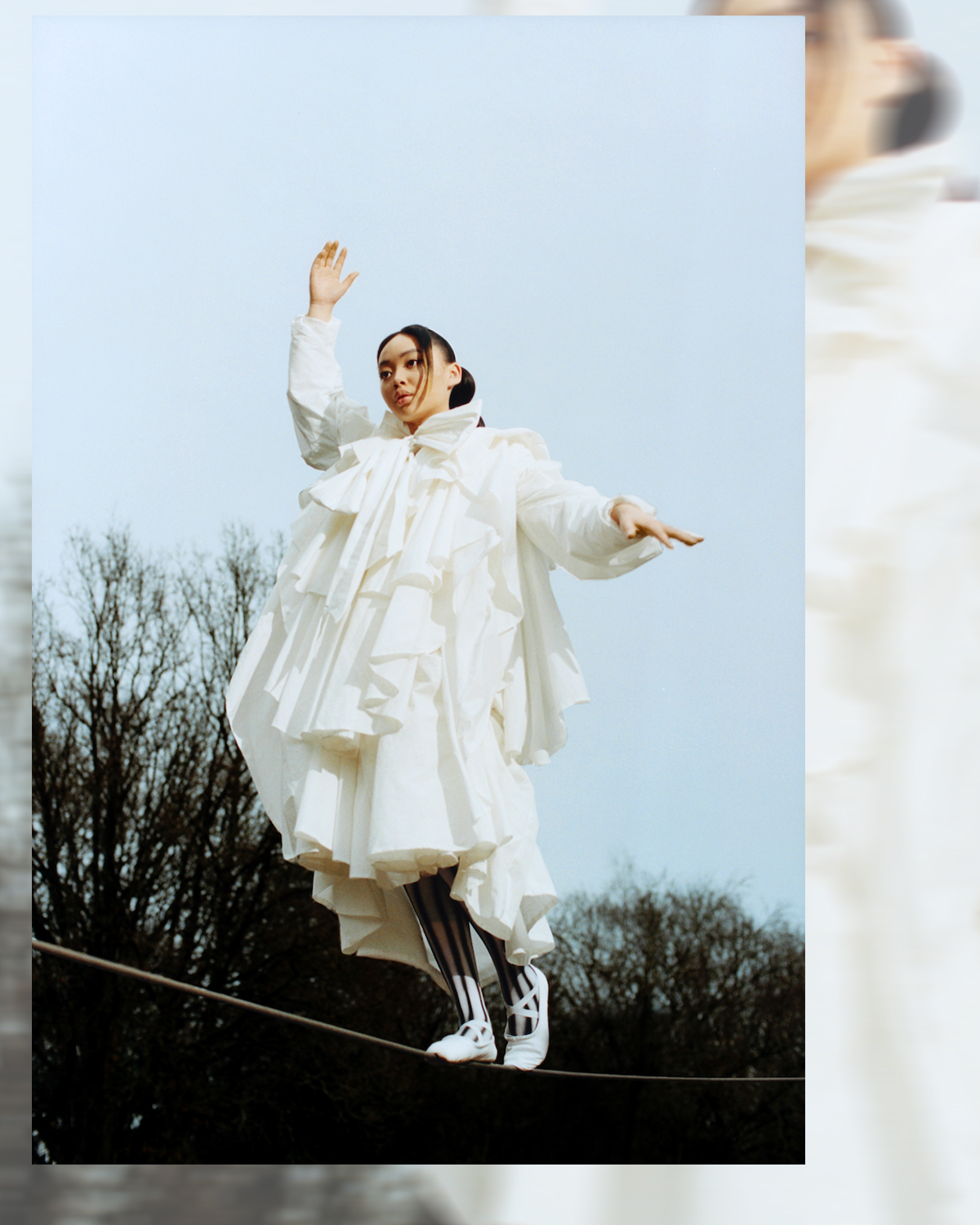
You just released the album One Foot in Front of the Other. What was the inspiration behind the album, and what was it like to release your first album?
I’m terrified of the idea of releasing an album, so we’re calling it a mixtape. But when I sat down and listened to all the music I had written over lockdown, it felt like there was this theme of a journey, and for some reason, I just kept referring to these analogies of walking. It was like I was painting the story of someone who was consciously trying to recover and nervously trying to figure out how to get back on their feet.
There’s one song called "One Foot in Front of the Other,” and there’s a song "Walk,” and even in the song "Remembering My Dreams,” there’s this lyric about doing okay and then suddenly remembering an ex, and you’re thrown off balance. It’s this whole journey of someone who’s nervous and cautious but trying. That was the lyrical journey and inspiration for the mixtape. I had no idea where the songs would end up taking me, but it feels good to have them out there in the world.
You self-produced and wrote this mixtape in your bedroom. What was that experience like? Do you think the extended quarantine has impacted the way you’ll continue to create music in the future?
To be honest, overall, I feel that quarantine was bad for making music. I thought it would be great because I was like, "I can just be by myself and write by myself,” but I just wasn’t inspired. I guess it forced me to dig a little deeper and to figure out what I wanted to write about and what I wanted to say. But it was challenging. There were so many moments when I was just trying to write songs, and I couldn’t, and I felt like I was just banging my head against the wall. Writing songs in isolation is weird, and it’s even stranger when you eventually put them out because they’ve been this private thing you’ve had, and you’ve made them by yourself. So I’m just excited that things are opening up again. I hope that means that my music will be better, but we’ll see.
Speaking of writing, some of your lyrics talk about so much more than a relationship (e.g. "Say It Again” and "Mirror Talk”). What role, if at all, does mental health play in your lyrics?
It’s huge. It’s just the natural thought process of a young woman growing up today. I could make up loads of dramatic love stories about my love life and whatever, but that’s not what feels real. There are so many songs about breakups out there, so I guess that’s why I’ve written so many songs about me and my thought process. Mental health is big for me as well. When I wrote "Mirror Talk,” I was 17, and at that point, all of my girlfriends around me felt like they had crippling bad mental health in different ways, and I didn’t know how to cope with or handle that. It’s definitely a real thing that naturally manifests in my music.
Was that what you were going through while you were writing this mixtape? Were you trying to move on from grief or a specific moment?
I think so. And it wasn’t even like there was one big event that triggered this story of recovery. It’s a feeling that I constantly have, like a nervous, vulnerable feeling that, with every single step I could take, I could fall. That feeling especially applies to pursuing my passion: music as a career. Every single step I take in music is public, and that’s daunting and nerve-racking, and if it flops, everyone out there in the world can see it. I also think that feeling relates to everything, whether it’s relationships or the future or the unknown. It’s just that feeling of "Oh, I just have to keep putting one foot in front of the other.”
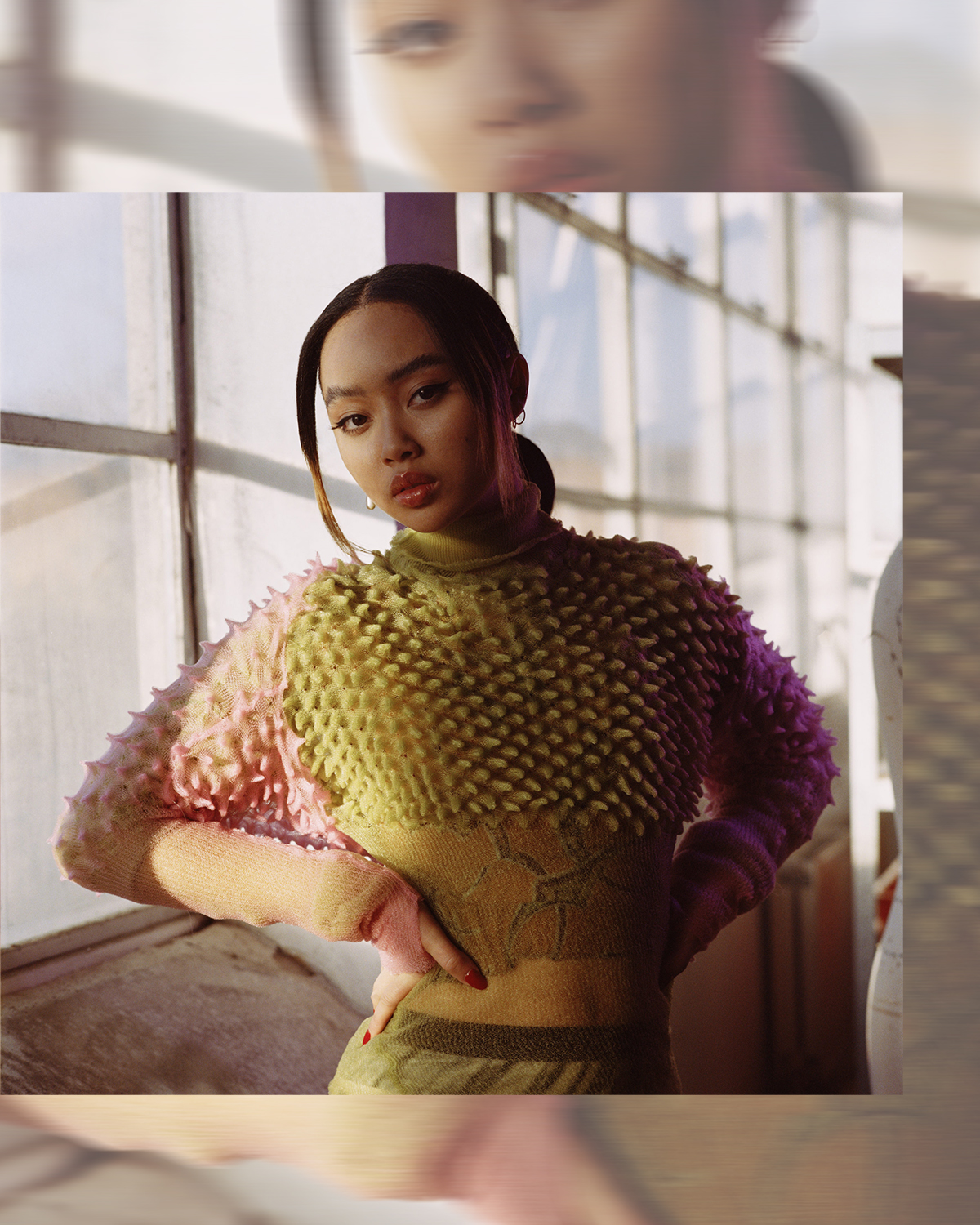
Other than creating music, what else have you pursued in terms of self-care over the past year?
I think there’s this big buzz around self-care, which is important, but I find that when I look too introspectively or overthink about myself, it’s the worst thing for my sanity. It’s much better to think about other people. Try to think about your friends and relationships around you and put everyone else before you. When you do that, you become a bit of a better person.
Being diligent with the relationships in my life that I cared about. Whether it’s as simple as going for walks or FaceTime my friends, keeping those relationships close carried me through. Praying a lot as well. That’s always a massive thing in my life. I think praying means that I’m not always spending every day thinking about me, myself, and I, but giving it back to God.
How much of your faith guides your music? Is it a part of your creative process?
Growing up as a kid, I’ve always known music as something so powerful. I’ve seen it as a form of worship, I’ve seen it heal people, and it’s healed a lot of things in me. Music isn’t this mundane thing you hear on the radio. It’s undoubtedly got a greater purpose. In that sense, it always keeps me inspired.
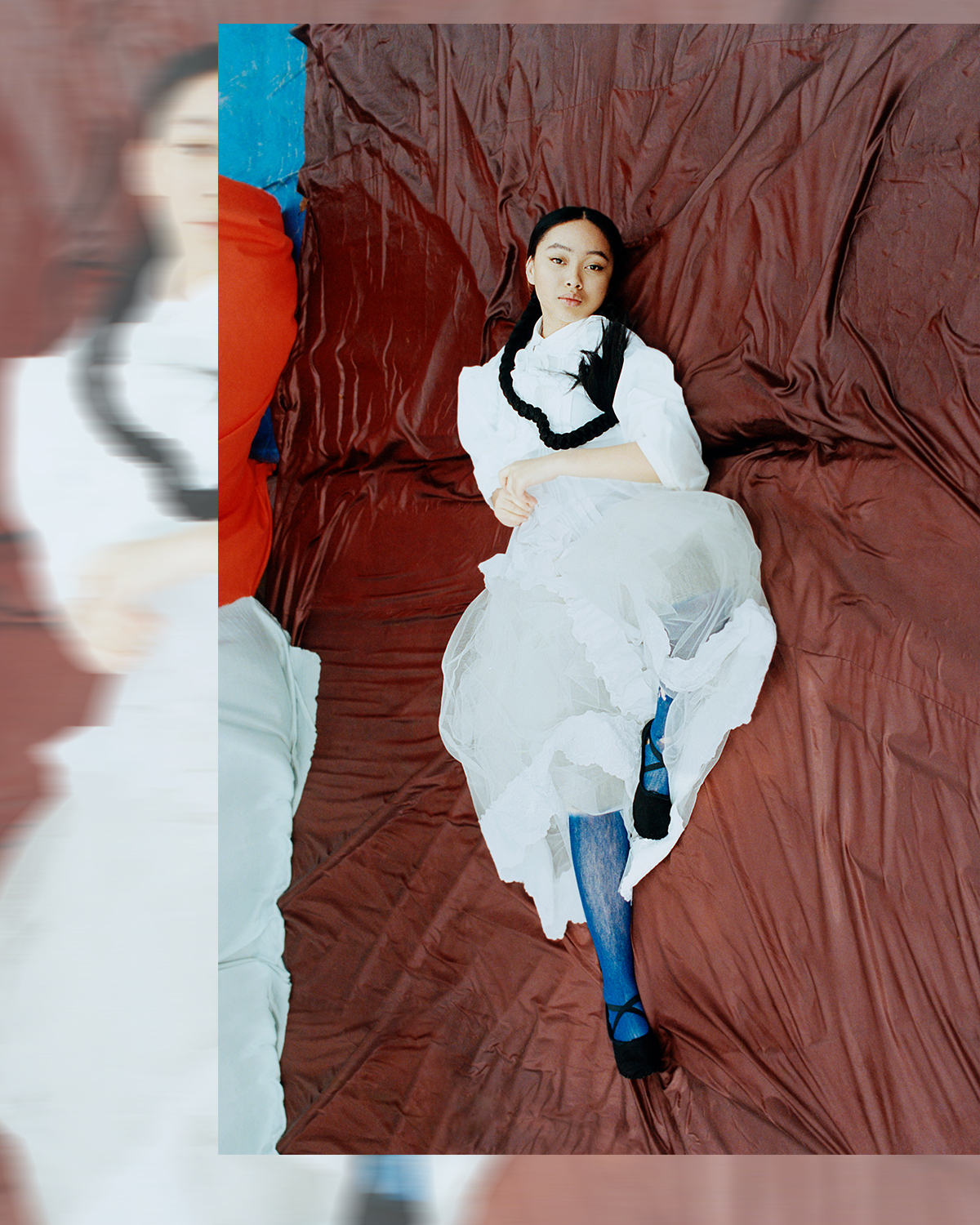
You recently did a mini-documentary with Spotify. How did that project come to life, and what do you think viewers might learn about you from it?
Yeah, that was weird in the best way. When you think about filming a documentary, that’s something that happens at such a later stage in your career. It was nice that Spotify wanted to do that. They chose me as their first Radar artist, which are artists they’re backing globally, which was super cool and exciting. I try not to watch it back too much, but it was a nice moment, and I hope it gives people a chance to get to know me better.
You grew up in Kings Langley and have spoken about how you were acutely aware of having a Chinese mother and a Jamaican father. How did your upbringing inform the way you approach art?
There was nothing to do growing up in a small town, and I was always kind of on the sidelines, whether that was people consciously making that happen or not. So it just became a state of mind I was used to, and looking back, I think that’s why I threw myself into music. When you don’t feel comfortable in social settings or whatever, you find other ways to express yourself. I felt confident in music. I thought that I was good at that and that it was a safe thing for me to do. It was for me and no one else. I also like to think that being the odd one out makes you more comfortable in your skin, and you become comfortable taking risks. Growing up and being used to not being "normal” means I can embrace something like a music career, take risks, and be comfortable taking them.
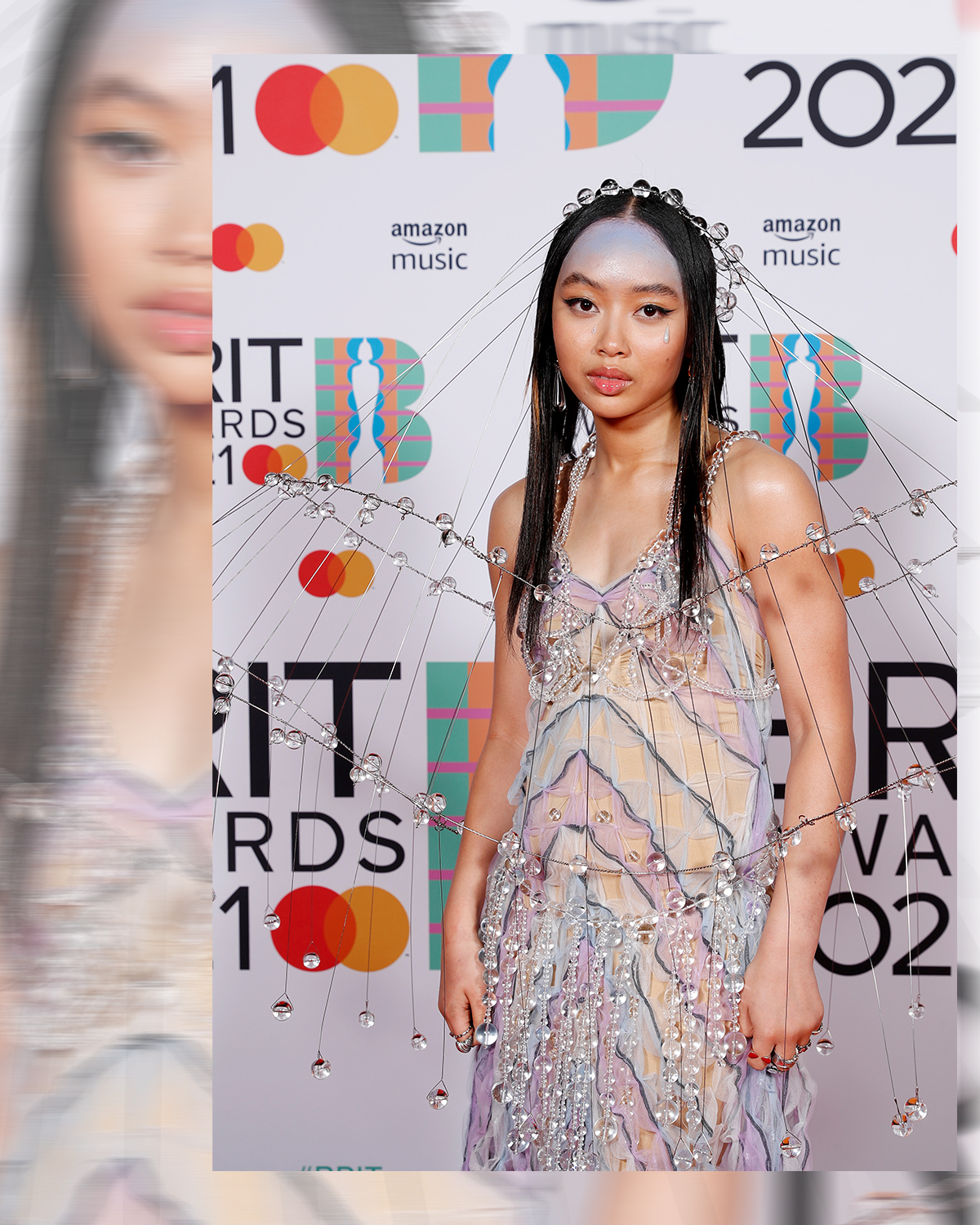
What has been a monumental moment in your career thus far?
The BRIT Awards is the biggest thing that’s happened. When I look at the list of people that won that award, it’s kind of terrifying. I’d say winning a BRIT Award is pretty crazy.
Yes, we have to talk about that moment. You became one of the youngest people to win the BRIT’s Rising Star Award, which has previously been won by artists like Adele and Jorja Smith. What was that experience like?
It’s surreal in many ways, but it’s double surreal because it was in lockdown, so nothing felt real. My manager called me up to tell me I won a BRIT Award, and that doesn’t really sink in until you’re actually in the arena. It’s nuts. Half of you has imposter syndrome, and half of you feels proud that you made it through the year with something like a BRIT.
You’ve spoken about how you learned how to sew, and you even made your look for the BRIT Awards. What does the power of being able to create your own clothing mean to you?
It’s something I’ve always done on the side. It wasn’t like I needed to create every single thing I wear. It was just a nice thing I enjoy doing, and I just brought pieces along with me for photo shoots. Nowadays, there’s just so much content that’s thrown in our face that’s fake and manufactured and not real, so it’s nice any chance you get to throw in something that’s a personal touch and that it’s authentically coming from me. In making my clothes, there’s been such a great response from people. They seem to love it, so it’s always been part of the story of what I do, and it felt like it was right to do it for the BRIT Awards.
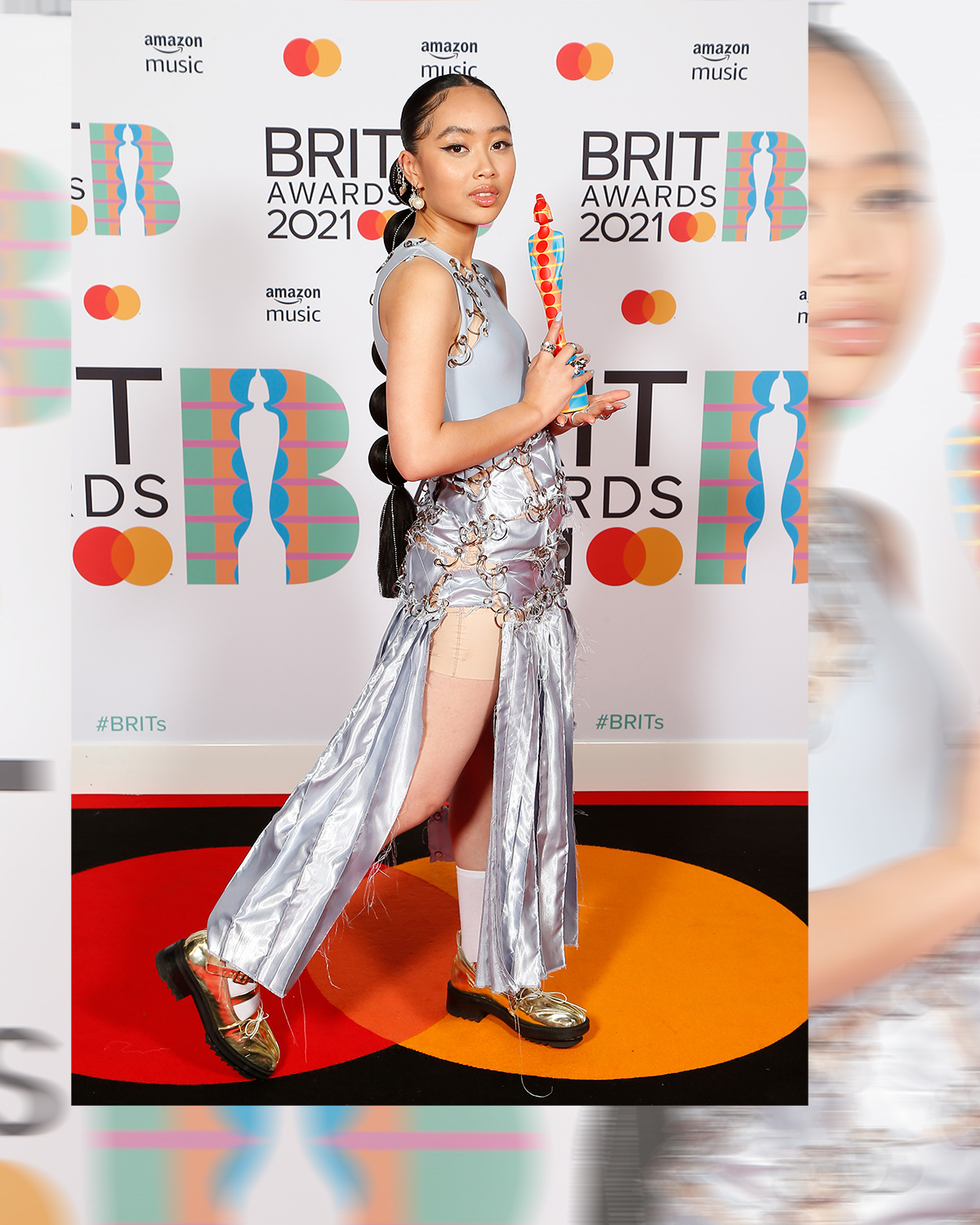
Aside from creating clothing for music videos or performances, what role does fashion play in your everyday life?
Fashion has always been another thing I’ve latched onto, and I’m sure I could speak for hours about why, but I think it goes back to that idea of being a biracial young woman living in a small town and just trying to find and express oneself and even hide in the clothes, which is fun. I just love it. I love dressing up. And even on my Instagram now, if I’m going to something, I’ll try on loads of clothes and get people to vote on what I should wear, so I think it’s fun, and it doesn’t need to be this serious thing.
Are there any trends you’re excited to wear this summer?
I’m so not used to dressing for summer because I live in London, and it’s always rainy and stormy, so when the sun comes out for one month, I don’t know what to do. I can’t leave my house. I can’t get dressed. I guess I always resort to a vintage dress. I love vintage bridal gowns, which is slightly psycho, but there’s something quite classic about a vintage satin dress in the summer.
Are there any designers that you’re obsessed with?
I love Cecilie Bahnsen and Molly Goddard. I loved wearing Susan Frank at the BRIT Awards. She’s an up-and-coming designer in the United Kingdom. I love clothes that are made out of unconventional things. The headpiece I wore to the BRITs was made out of these marbles, which was quite beautiful. I also love Wales Bonner. She’s another London designer I love. I don’t think it’s always the established designers I love, as I love supporting up-and-coming students. My stylist will sometimes pull student designers as well, and they’re entirely impractical pieces at times, but they’re quite creative and fun to wear for a photo shoot.
How long have you had a stylist?
It’s quite a recent thing. Things have been quite busy over the past few months, and I felt I needed one because I can’t make every single thing, but it took a while to find the right stylist. I tried a lot of different stylists, and I hated it because they put me in weird shit, and I was like, "I look like every other girl. This is boring.” It didn’t feel right till I found Kamran Rajput. He just gets it, and it’s great. I think that’s what it’s like with all creatives. You just have to find the right people that align with what you like and what you do.
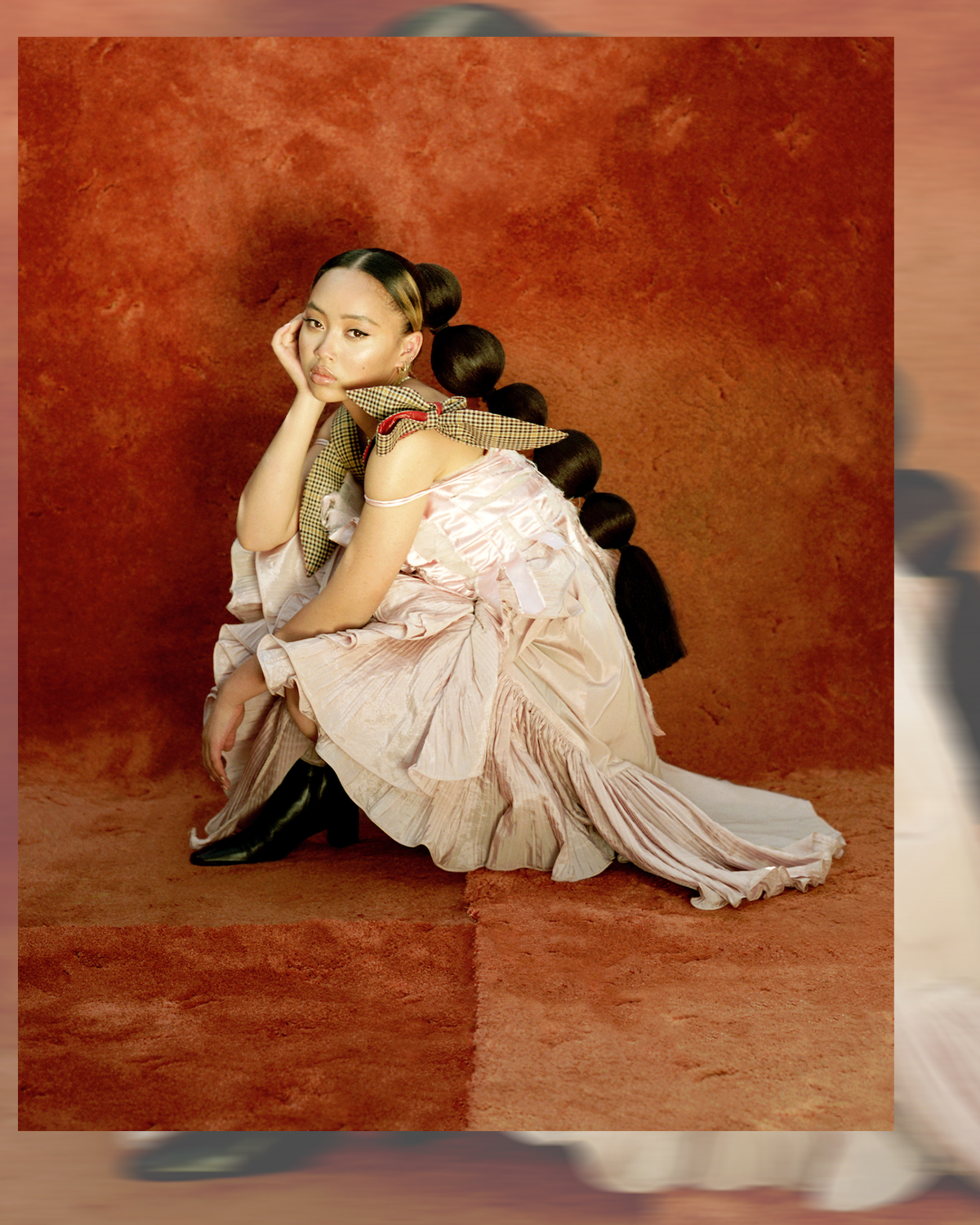
Okay, we have to talk about your haircare routine. You create these incredible braids and fun ponytails. When did you start playing with extensions? Do you have a go-to hairstylist?
I’ve got a hairstylist. She’s incredible (Tomi Roppongi). Realistically, I’ve got Afro hair, and I have a lot of it, and people don’t know what to do with Afro hair. So I’ve just got something that I can say, "Here, do it,” and it’s kind of protective, and I don’t have to wear it down or straighten it every time. I can just sort of slick it back. It’s practical. The struggle of having Afro hair made me create a signature hairstyle. I think the bubble hairstyle came to be as I felt that I should probably always have something I do because that’s just good from a practical perspective of people recognizing who you are.
Do you feel like you’re in a place where you’ve come to love your natural texture no matter how you’re styling it?
I’m getting there. Honestly, for most of my life, I hated it. So now, I’m wearing it natural more. But every day, practically speaking, it’s just so much. It’s so many products, and then the products get everywhere, and then sometimes, you just want it to be a certain way. I’m getting way more comfortable with what my hair is and what my skin is, but for most of my life, I wanted to hide it.
What haircare products do you love?
I’m a coconut-oil girl, which I know is controversial. Some people think it’s terrible for natural hair, but it’s what I always go back to. I typically use SheaMoisture products, to be honest. I’m not loyal to that many brands. As long as it’s moisturizing, it’s good.
Do you have a specific skincare routine, too?
I didn’t until last year when the pandemic hit, and I was like, "Why is my skin breaking out so bad?” Everyone was like, "You need a skincare routine,” and I was like, "Oh, what is that? It seems complicated and expensive.” So now, I do, and I still don’t know what I’m doing. It’s like cleanse, use an ordinary hydrochloric acid, use a serum, and moisturize. But I still get overwhelmed. It’s so expensive, and there’s so much I don’t understand, so I don’t know where to start.
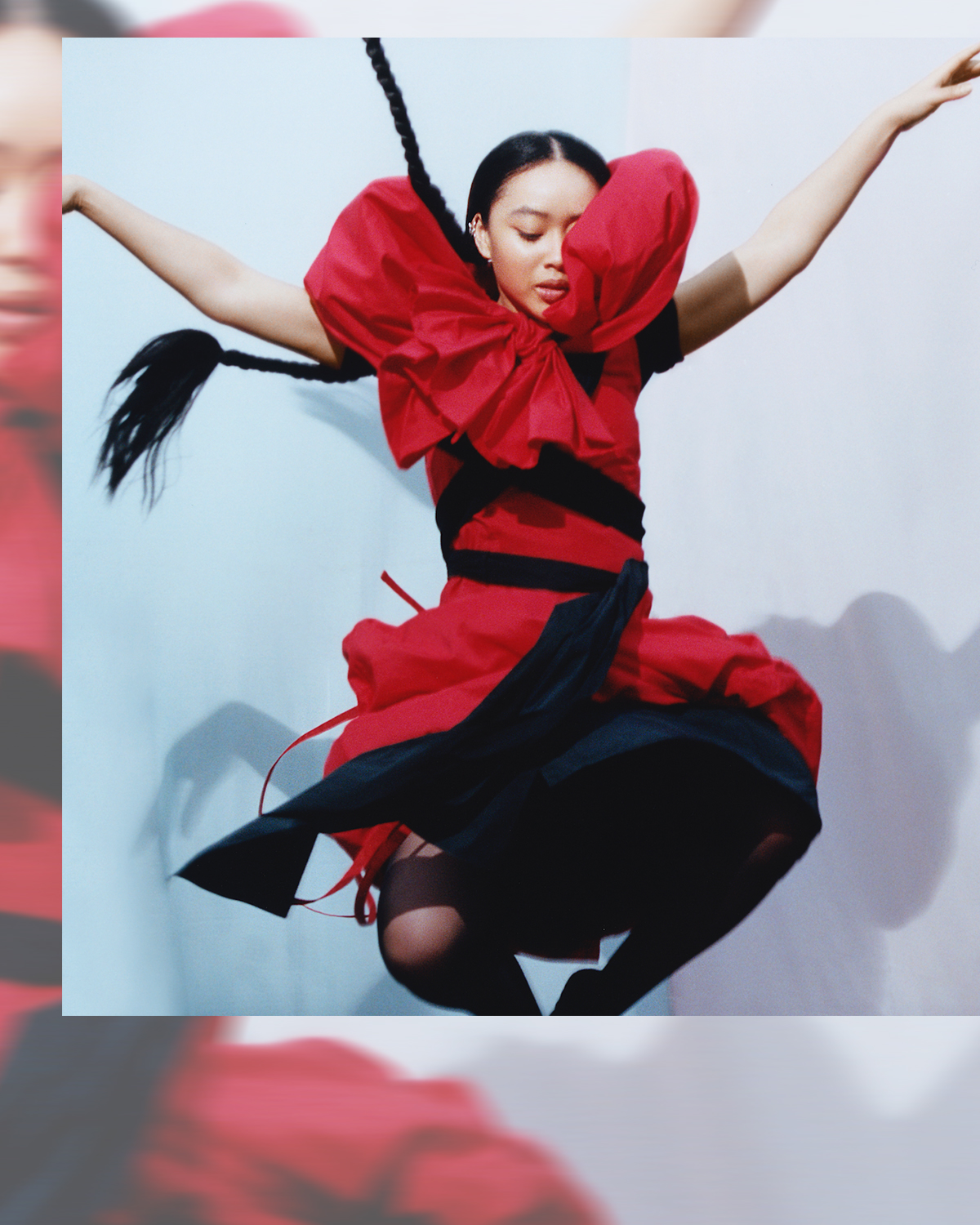
Your relationship with your skin and hair is evolving, but what about with pop music? When you were growing up, what was the determining factor that made you decide to pursue pop? Do you think you’ll eventually explore other musical genres?
Honestly, pop music is all I ever loved. My dad tried hard to make us listen to Black music, and I do love a lot of R&B and soul, but I just connected to pop music in a new way. It wasn’t really a conscious decision. It was just something I loved to write. And as far as other genres, I think, of course, you’ve got to evolve. I don’t know if I’m methodical enough to be like, "One day, I’m going to do this song and that song,” but you just got to be open to evolving and making new things.
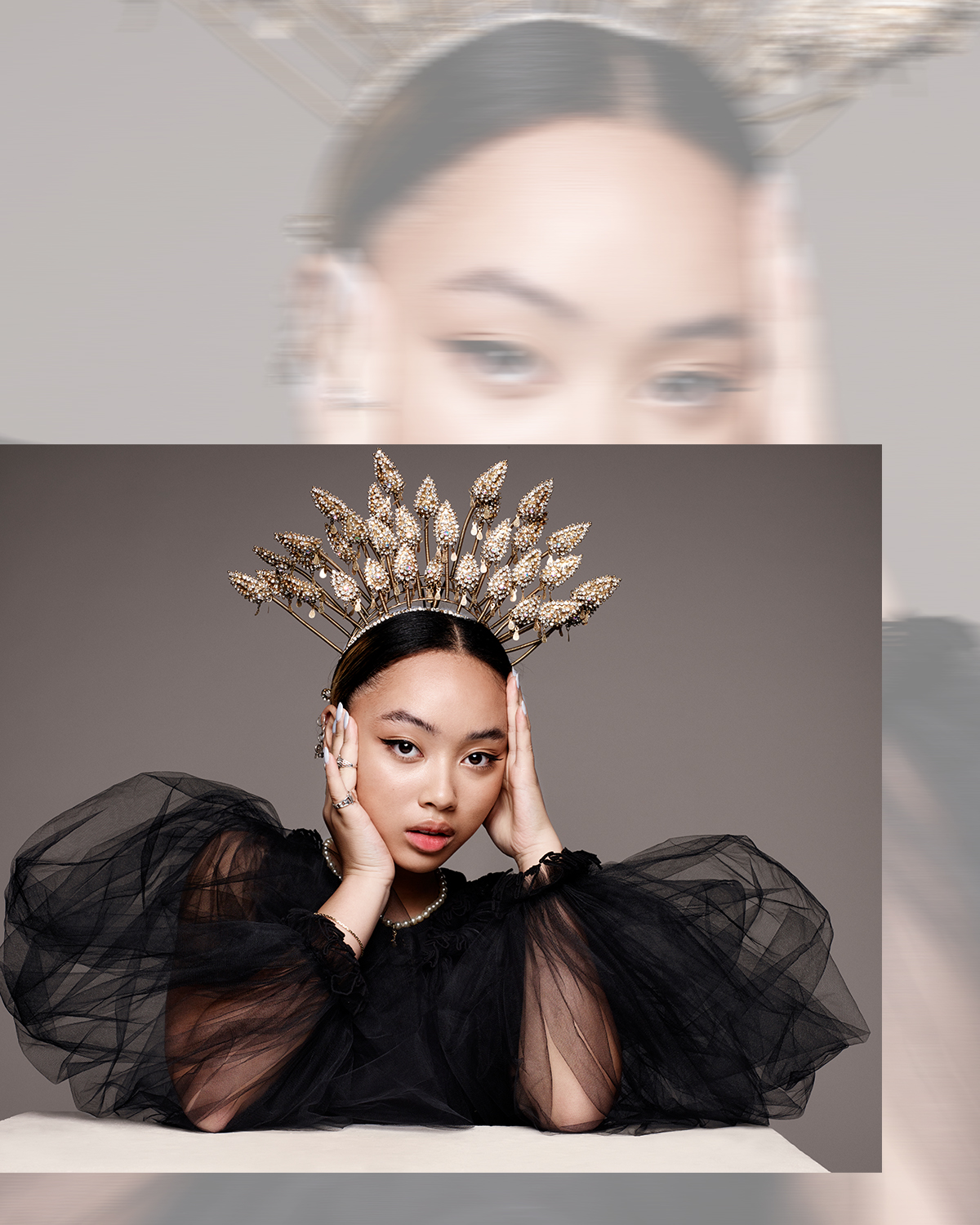
Do you feel like the UK music industry is different from the U.S.?
Yes, it’s very different. It’s so hard for UK artists to break into the States because there is so much land to cover, and also, I think there’s already so much great talent. Over here, there’s a lot of great music, but it doesn’t always translate over to the States.
One revelation I had about the music industry the other day is that most artists that have been able to break internationally from Britain are not people of color. It’s quite shocking to think that, on the level of international stars like Ed Sheeran, Adele, Sam Smith, Harry Styles, and The Beatles, we haven’t had anyone of color yet. I might be wrong, but I can’t think of anyone that’s broken at that scale out of the United Kingdom, which is a scary thought. So there’s definitely a lot of work that still needs to be done.
The music industry was severely impacted by COVID-19. Are you looking forward to live performances again?
I am. I’m nervous, though, because I feel like I never really did it. I did one headline show, which was 200 people in London, and I did the BRITs, so that’s all I’ve done, and I’m excited to dip my feet into it and get into it and see and meet the people who have been listening to my music over lockdown.
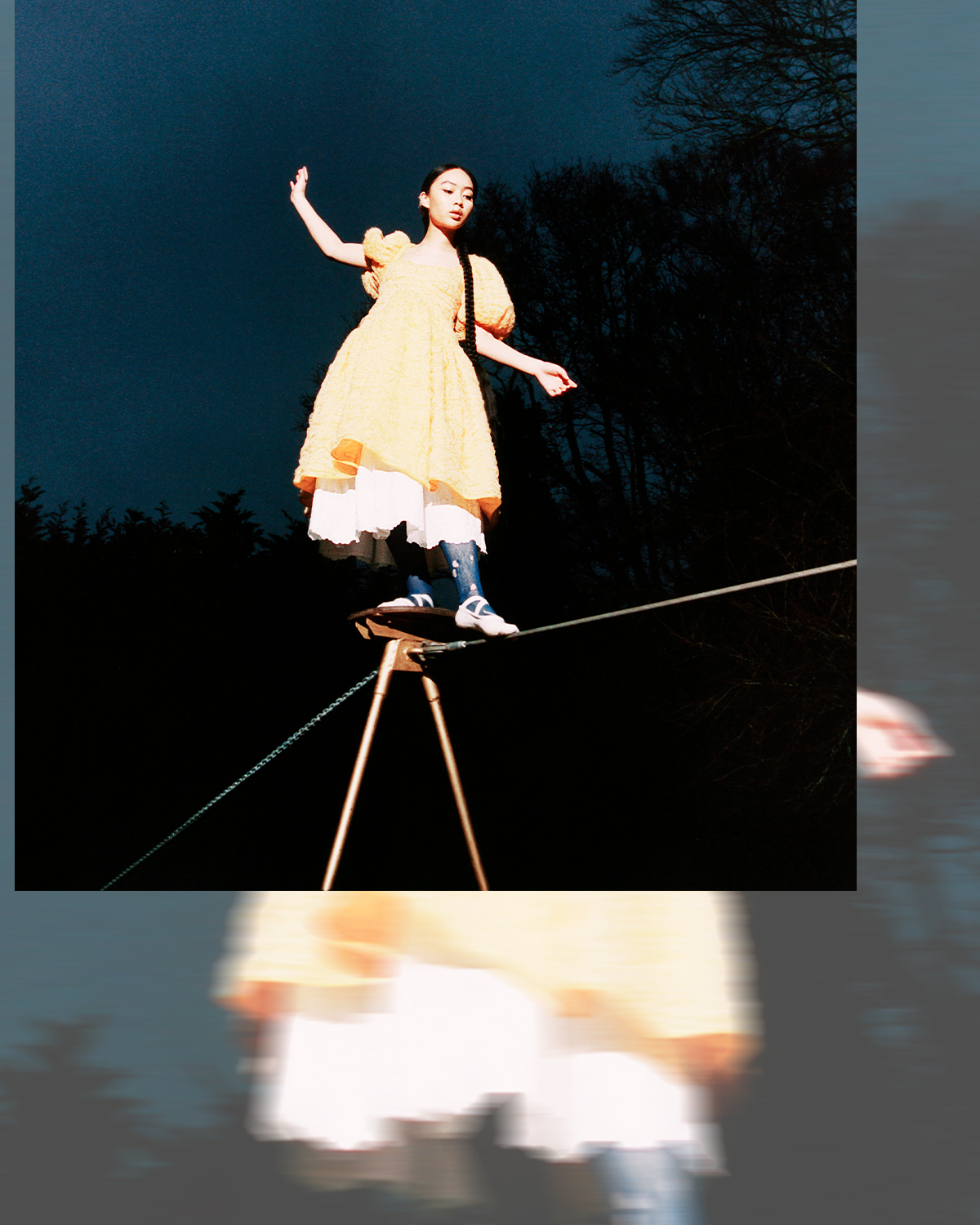
Now that things are reopening in the UK and you’ve released your mixtape, what are your hopes for the next step in your career?
That I don’t disappoint. I think there’s been a lot of buzz and hype. Being a rising star is a lot to live up to. I hope to put on loads of shows, and I hope those are good, and I hope to see a lot of growth there, and I hope just to write more.
How have you been handling that buzz? How do you keep yourself grounded as a "rising star”?
Well, I live at home. That helps. And again, the whole lockdown kept things not real, in a good way. But it’s a bizarre, unnatural thing to strive for fame and pursue a career where you’re always the focus. It’s an unfulfilling thing to wake up and say, "Who am I? What am I to the world? What am I going to say to the world? What am I going to do?” In that sense, that’s quite grounding because fame is not fulfilling, and I think trying to just not focus on fame. I’m focusing on writing good songs and being a good person, just taking it all one step at a time.
Next: These 5 Rising LGBTQ+ Musicians Are Setting the Tone for Summer
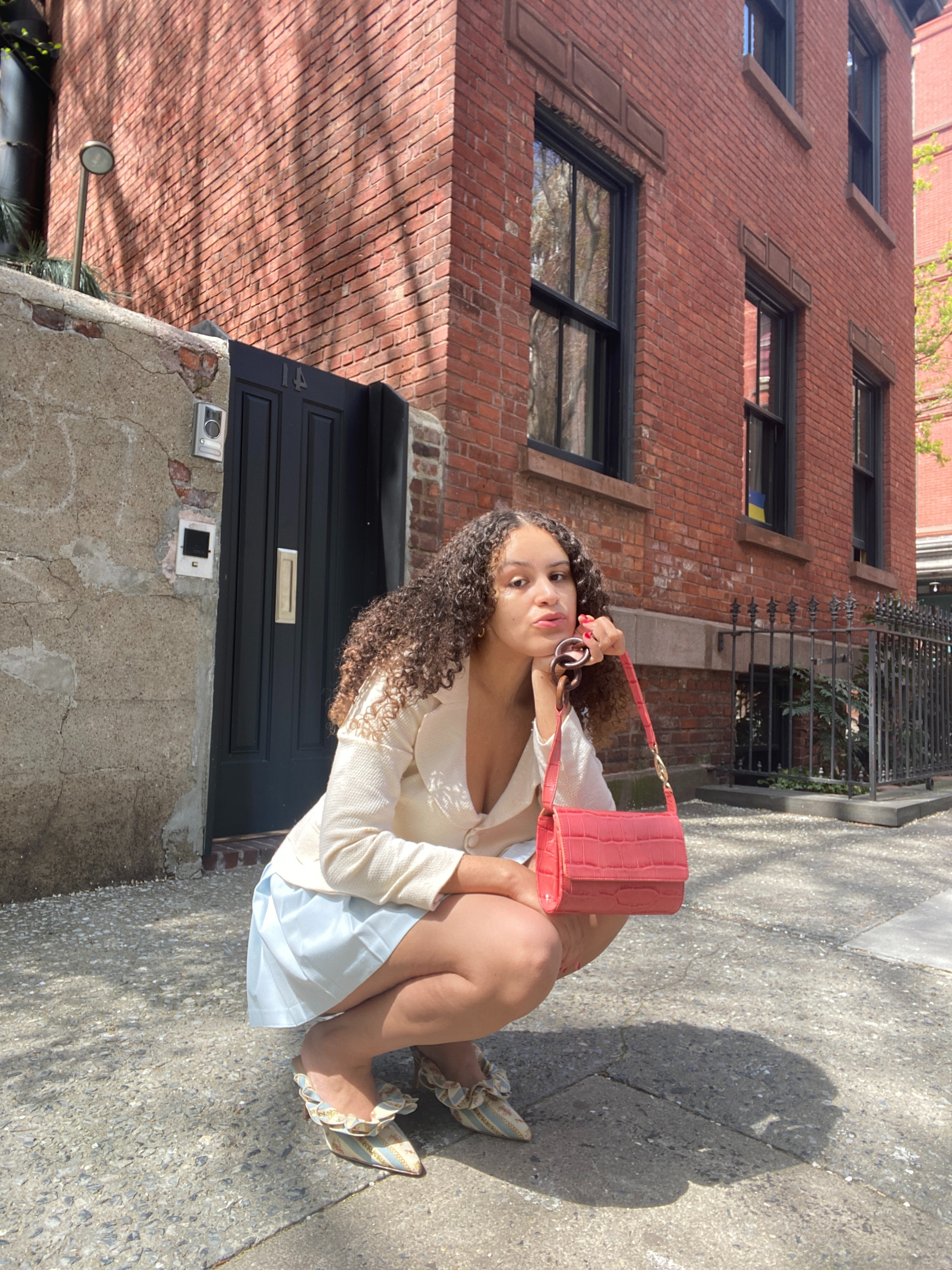
Jasmine Fox-Suliaman is a freelance writer and editor living in New York City. What began as a pastime (blogging on Tumblr) transformed into a lifelong passion for unveiling the connection between fashion and culture on the internet and in real life. Over the last decade, she's melded her extensive edit and social background to various on-staff positions at Who What Wear, MyDomaine, and Byrdie. More recently, she’s become a freelance contributor to other publications including Vogue, Editorialist, and The Cut. Off the clock, you can find her clutching her cell phone as she's constantly scrolling through TikTok and The RealReal, in search of the next cool thing.
